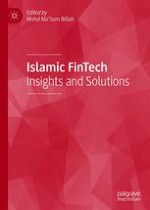
2021 | OriginalPaper | Buchkapitel
1. Emergence of i-FinTech in the Contemporary Socio-Economic Reality
verfasst von : Mohd Ma’Sum Billah, Suhail Ahmad, Sahibzada Ghisaul Haq
Erschienen in: Islamic FinTech
Verlag: Springer International Publishing
Aktivieren Sie unsere intelligente Suche, um passende Fachinhalte oder Patente zu finden.
Wählen Sie Textabschnitte aus um mit Künstlicher Intelligenz passenden Patente zu finden. powered by
Markieren Sie Textabschnitte, um KI-gestützt weitere passende Inhalte zu finden. powered by